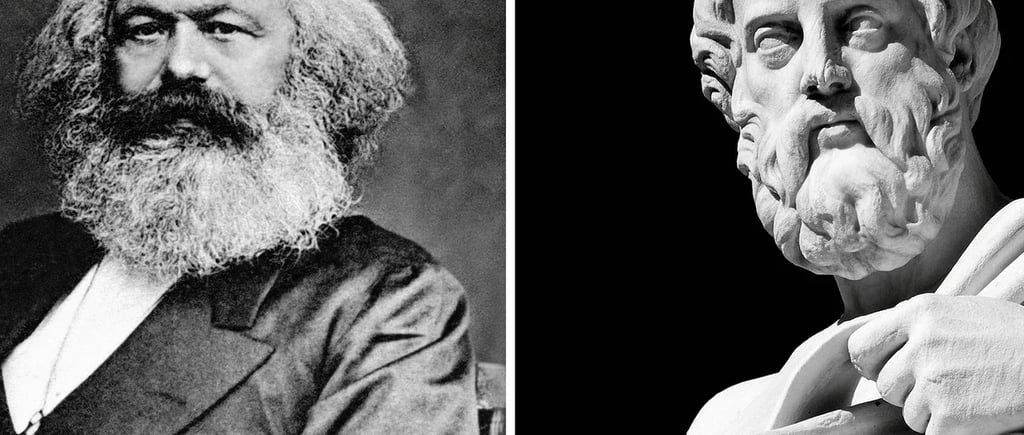UPSC Optional PSIR: Explain Plato's communism and compare it with modern communism. (2003)
Plato gave us philosopher-kings, Marx gave us the proletariat. Both talked about abolishing private property—but for very different reasons. In this post, we explore how Plato’s communism of the elite contrasts with Marx’s revolutionary materialism. Understand the core differences in their philosophies, goals, scope, and strategies—a crucial comparison for UPSC Mains & PSIR Optionals.
7/29/20252 min read


🧠 Plato’s Communism: A Quest for Justice through Unity
Plato’s communism in The Republic stems from his idealist philosophy. He believed a just state mirrors a just soul—each part doing its designated duty.
👑 Guardian Class Only:
His communism applies only to the ruling class (Guardians)—not society as a whole.
🔑 Key Features of Plato’s Communism:
Community of Property – No private wealth for Guardians; removes personal interest from governance.
Community of Wives – No private families; state controls reproduction for best offspring.
Community of Children – Children raised by the state to ensure loyalty to the collective, not families.
🎯 Purpose: To prevent corruption, promote unity, and ensure that rulers serve the common good, guided by wisdom, not wealth.
🔨 Marxist Communism: Revolution for Classless Society
Unlike Plato, Karl Marx developed communism as part of a historical materialist theory. For Marx, economic structures and class struggle shape history—not ideal forms or reason.
🔑 Key Features of Marxist Communism:
Class Struggle – History is a battle between oppressor and oppressed (bourgeoisie vs. proletariat).
Abolition of Private Property – Ownership of means of production is the root of exploitation.
Universal Application – Applies to all classes, not just an elite ruling group.
Revolutionary Change – A proletarian revolution must overthrow capitalist systems.
Classless, Stateless Society – Ultimate goal: no state, no class, no exploitation.
🧩 Slogan: "From each according to ability, to each according to need."
⚖️ Plato vs. Marx – Comparative Analysis
1. Philosophy:
Plato: Idealist – Justice comes through reason and harmony of classes.
Marx: Materialist – Justice arises through class struggle and historical materialism.
2. Class Focus:
Plato: Focuses on a small elite class (Guardians – about 5% of society).
Marx: Concerned with the entire working class – aims for universal emancipation.
3. View on State:
Plato: Sees the state as a necessary and positive force for achieving justice.
Marx: Views the state as an instrument of class oppression – must be dismantled.
4. Method:
Plato: Advocates gradual reform through philosophical education.
Marx: Calls for violent revolution led by the proletariat.
5. Economy:
Plato: Accepts economic inequality; Guardians renounce property, but producers don’t.
Marx: Demands abolition of private property and collective ownership of production.
6. Goal:
Plato: A virtuous, hierarchical state ruled by wisdom.
Marx: A classless, stateless, egalitarian society.
🔍 Key Takeaways:
Plato's communism is aristocratic, idealistic, and politically moral—focused on virtue and unity within the elite.
Marx’s communism is democratic, revolutionary, and economically driven—focused on class equality and material justice.
Despite sharing the term "communism," Plato and Marx speak from radically different worlds—one from the realm of ideas, the other from historical materialism.